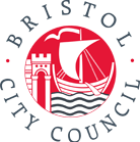My year of adventure doing UWE's Postgraduate Certificate in Science Communication
Zoe Trinder-Widdess, Communications Manager for Bristol Health Partners and NIHR CLAHRC West, talks about taking on UWE's Postgraduate Certificate in Science Communication. This blog was originally published on UWE's Science Communication Unit blog.
- 20th April 2018
Zoe Trinder-Widdess, Communications Manager for Bristol Health Partners and NIHR CLAHRC West, talks about taking on UWE’s Postgraduate Certificate in Science Communication. This blog was originally published on UWE’s Science Communication Unit blog.
I am not a scientist. There, I said it. But I am a science communicator.
A couple of decades ago, someone like me, with an airy fairy English literature degree, wouldn’t have found themselves working with university scientists. But these days, more and more people like me – science cheerleaders but not necessarily actual scientists – are helping communicate research in the real world.
Science is definitely changing – even in the last five years since I’ve been working closely with researchers. The Research and Excellence Framework (REF) and funding bodies now demand impact that’s way beyond papers, posters and citations. In this climate, enrolling on UWE’s Postgraduate Certificate in Practical Science Communication made total sense to me.
The fact such a qualification even exists signals that the discipline of science communication is definitely A Thing, and should be taken seriously. Researchers are an increasingly diverse bunch: the days of the don in his (or sometimes her) ivory tower are (mostly) a thing of the past. Scientists are open to communicating their findings with a wider audience beyond other academics – and we science communicators have a vital part to play in helping them do this well. And if there’s one thing I’ve learned about researchers in the last few years, it’s that they respect academic qualifications.
Health is my area of expertise, where it’s vital that we get messages from research right. If a physicist discovers something new about the origins of the universe and it gets misreported, that’s frustrating but it’s not exactly life-threatening. But health stories are bread and butter for certain sections of the mainstream media, and scientific nuance can be sacrificed on the altar of clickbait headlines. Obviously I’m not going to change that culture singlehandedly, but if I can help research teams produce accurate copy that’s still accessible and engaging to the person in the street that’s a good start.
For me, there’s also a political drive at work. In the current climate of fake news and devaluing of ‘experts’, helping more people understand science is a small but valuable contribution to a better, more informed society.
And there are also personal gains. I wanted to hone my skills and formalise the knowledge I’ve accumulated from my work. It’s been fascinating to discover that things I do intuitively, like framing a story, have whole bodies of theory behind them. In fact, sometimes this new knowledge has brought a sort of paralysis when writing something that I would normally knock out quickly in my day job. It’s certainly made me take stock and adopt a more analytical approach to what I do at work, though pressures still demand the odd bit of knocking stuff out.
I spend a lot of time training and supporting other people to be good communicators, so the course has enhanced my confidence in doing this. It’s reinforced the fact that I do already know a lot about effective science communication, and rounded the rough edges off things I’ve picked up informally over the years.
It’s well known that lifelong learning is an essential element of personal wellbeing. This course has invigorated me, helping me see new perspectives, meet new people and work on out of the ordinary projects. I’ve created a magazine with a group of people I didn’t know six months ago, and developed a board game for a UWE air quality project. It’s been an energising experience.
I won’t pretend it’s all been easy. I have a family and a full time job, and fitting the course in around these responsibilities has been challenging. I’m lucky that my employers have funded and supported me to do this course and have been generous in allowing me study leave. My partner has taken up the slack and generally been a rock when deadlines bite. I wouldn’t have been able to do the PGCert without the support of colleagues, friends and family.
Science communication is an alchemical mix of creativity and scholarship, where apparently clashing cultures meet. This course has really brought that to life for me. I’ve enjoyed the journey so far so much that I’m seriously considering doing the full MSc – if my work and personal life can accommodate it!






